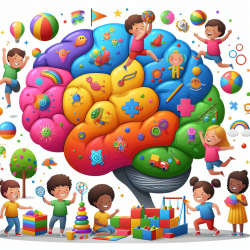Introduction
In the realm of early childhood mental health (ECMH), integrating services into primary care settings is a promising strategy to improve outcomes for young children and their families. The research article "Implementing Integrated Early Childhood Mental Health Services in Primary Care: Relationships, Vision, and Sustainability" provides invaluable insights into this integration process. This blog aims to distill key findings from the study to help practitioners enhance their skills and foster better ECMH service delivery.
Key Findings from the Research
The study highlights four main themes that are crucial for the successful implementation of ECMH services:
- Strong Multilevel Working Relationships: The research underscores the importance of robust relationships at both individual and organizational levels. Effective integration requires collaboration between agencies and staff, ensuring that services are delivered seamlessly.
- Capacity-Building Activities: Training and workshops are vital for fostering a shared understanding and language among stakeholders. These activities not only enhance skills but also build solidarity and improve implementation.
- Financial Challenges: Financial constraints are a significant barrier. The study suggests that addressing these challenges through strategic funding and resource allocation can enhance the efficacy of ECMH systems.
- Flexibility and Resourcefulness: Overcoming logistical challenges requires adaptability. Creative solutions and resourcefulness can help navigate barriers, ensuring successful integration.
Recommendations for Practitioners
Practitioners looking to improve ECMH services can draw several lessons from this study:
- Build Strong Relationships: Focus on developing strong, trust-based relationships with other agencies and within your team. This foundation is crucial for successful service integration.
- Invest in Training: Engage in continuous professional development and capacity-building activities. These efforts will enhance your skills and create a cohesive approach to ECMH.
- Address Financial Barriers: Advocate for funding and resources that support ECMH initiatives. Highlight the long-term benefits of integrated services to stakeholders and policymakers.
- Be Adaptable: Embrace flexibility and resourcefulness in overcoming logistical challenges. Innovative solutions can lead to effective service delivery despite constraints.
Encouraging Further Research
The study serves as a preliminary guide for states and institutions aiming to enhance ECMH services. However, further research is needed to explore specific strategies for improving integration and scaling these models effectively. Practitioners are encouraged to engage in research activities, collaborate with academic institutions, and contribute to the growing body of knowledge in ECMH.
To read the original research paper, please follow this link: Implementing Integrated Early Childhood Mental Health Services in Primary Care: Relationships, Vision, and Sustainability.










